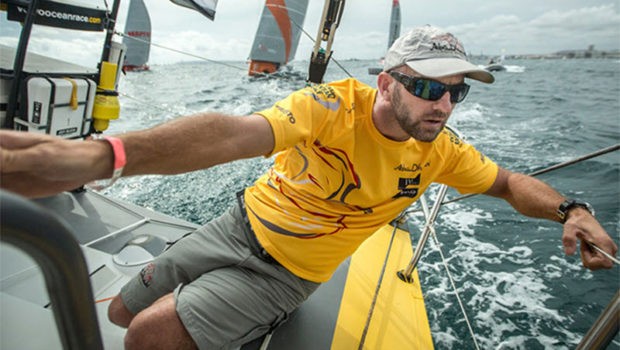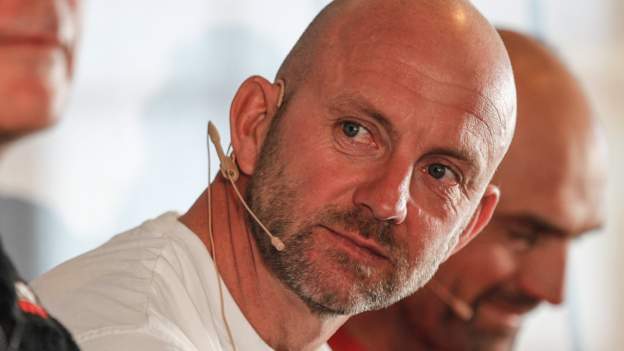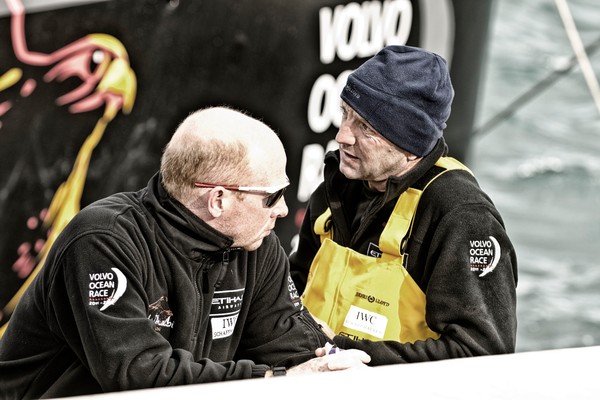Ian Walker, double Olympic silver medallist and Volvo Ocean Race winner as skipper of Abu Dhabi Ocean Racing, shatters 10 myths about sailing and why anyone can get involved and have fun in the sport....
Sailing has given me a lifetime of enjoyment and the pleasure of travelling all over the world meeting new people. What I like about sailing is the balance of a physical, technical and mental challenge. In some ways it really is like playing chess on water, but getting a good workout and lots of fresh air at the same time.
But unlike kicking a football it can appear to be a difficult sport to get started in. So how do you get started and is sailing really a sport for all? I am going to start by shattering a few myths.
——————
Myth 1 – “You have to start young”
As in any sport, you learn faster and it comes more naturally when you are young. But the beauty of sailing is that you can sail well into retirement and everyone can find a boat to suit them. One member of my victorious Volvo Ocean Race crew didn’t start sailing until he was 19.
Myth 2 – “You have to be really strong to be good at sailing”
Obviously national teams are not only highly skilled but also very athletic these days and some jobs on a keelboat require huge physical strength. But there are lots of different jobs and some need to be done by lighter more nimble crew. Your power to weight ratio is often important and this is one reason why girls can compete so equally with men. Britain’s most famous sailor Dame Ellen MacArthur sailed around the world several times and she is tiny!
Myth 3 – “You have to be rich to sail”
It’s true that flash racing yachts cost a lot of money, but then so do top racing cars. Many boat owners are often looking for crew and willing volunteers are rarely refused. Second hand boats can be the same price as a set of golf clubs and my sailing club membership costs no more than one round of golf at a top golf course!
Myth 4 – “It is not a sport for girls”
Nothing could be further from the truth and one of the great things about sailing is how men and women compete on equal terms. It is not embarrassing to be beaten by the ladies, although we obviously fight hard to not let it happen!
Myth 5 – “You get cold and wet sailing in England”
Well I can’t promise that you won’t get your hair wet but if you buy the right sailing clothing you should stay warm and dry all year round.

Myth 6 – “If you haven’t sailed before you will be sea sick”
Maybe you will – but that is nothing to do with how much you have sailed before. In my experience about 20% of people get very sick and this is probably not the sport for them. Of the rest half will rarely ever feel ill and the others can manage it with drugs or homeopathic treatments. Some of the best sailors in the world get sea sick – including half of my Round the World crew!
Myth 7 – “You have to buy a boat to go sailing”
Again this isn’t true. You can start by doing a learn to sail courses. Clubs often have some club boats you can borrow – especially for the juniors. If not you can start like I did by crewing for other people in their boat.
Myth 8 – “Sailing is a dangerous sport especially if you can’t swim”
Being able to swim is a good idea for everyone and perhaps going sailing will motivate you to learn. If not, you should always wear a lifejacket that will keep you afloat if you fall in.
The only other real risk is banging your head on the boom and for beginners it can be good to wear a helmet until you understand about the wind.
Myth 9 – “You will get shouted at if you don’t know what you are doing”
Sadly there are some idiots who like to shout at their crew or other boats, just like there are parents who abuse game officials at youth sports. Sailing is generally a very friendly social sport and people will go out of their way to help you. The top sailors love to tell you how they won the race so you can learn a lot by listening!
Myth 10 – “you have to live by the sea”
You do not have to live by the sea as there are many lakes, reservoirs and rivers that have sailing clubs in the UK. I never sailed on the sea until I was 14 and Ellen MacArthur grew up in Derbyshire – about as far from the sea as you can get.
——————
One obvious way to get started is to complete a recognised dinghy or yacht sailing course at a club or sailing school near you. This is not the only way though. Crewing for someone who knows what they are doing is an excellent way to learn and that is how I started in a Mirror dinghy when I was 8 years old. The best advice I can give is to find your nearest sailing club and get down there and meet the members. They should be welcoming to potential new members and they often have taster days.
For kids it is even easier as most sailing clubs probably have junior programs and junior sailing regattas. They often have club boats for kids to borrow. My kids absolutely love sailing in Junior Fortnight at our club, not so much for the sailing, but for the chance to hang out and enjoy the social side with boys and girls of their own age. There is no better feeling as a parent than to see your kids learning new skills and enjoying the new life skills that sailing brings.
For newcomers sailing can appear daunting and confusing, not least because sailors seem to speak a different language. Every part of the boat and sails has a specific name and so do all the manoeuvres. If you don’t know your luff from your clew or your gybe set from your windward side, don’t panic! Things can be explained simply and ‘pulling the red one’ is just as acceptable as ‘tailing the spinnaker halyard!’
All these words give an impression of a whole new world of knowledge and skill, but believe me you will pick it up fast. And the people who sound all knowledgeable often know less than you may think – we all started somewhere!
I hope to see you on the water soon!
Ian Walker is an ambassador for Musto





